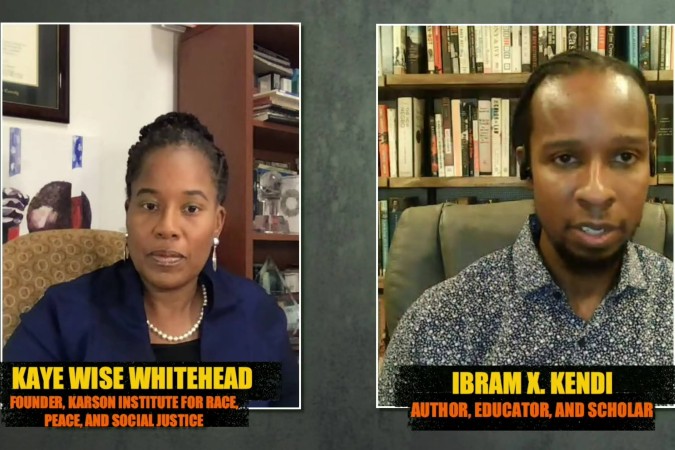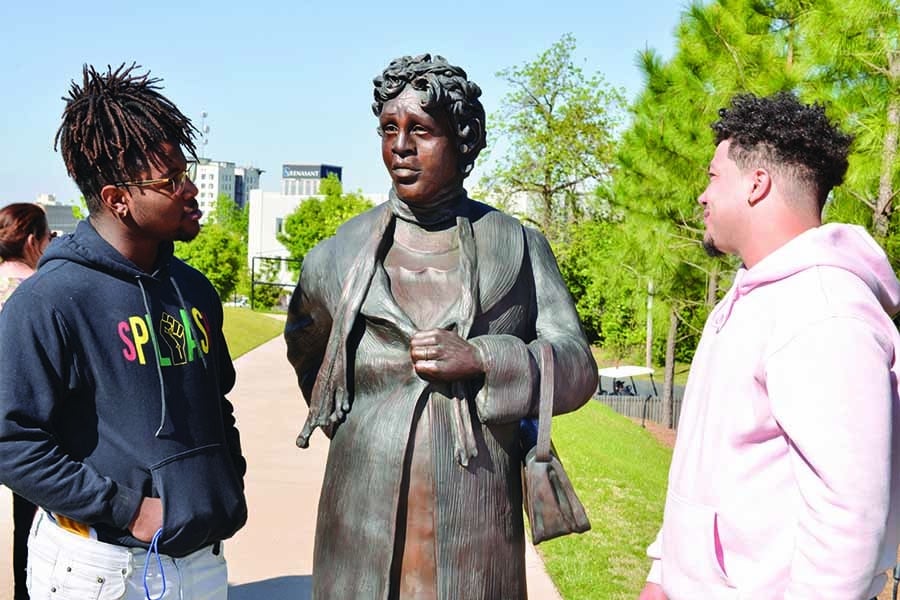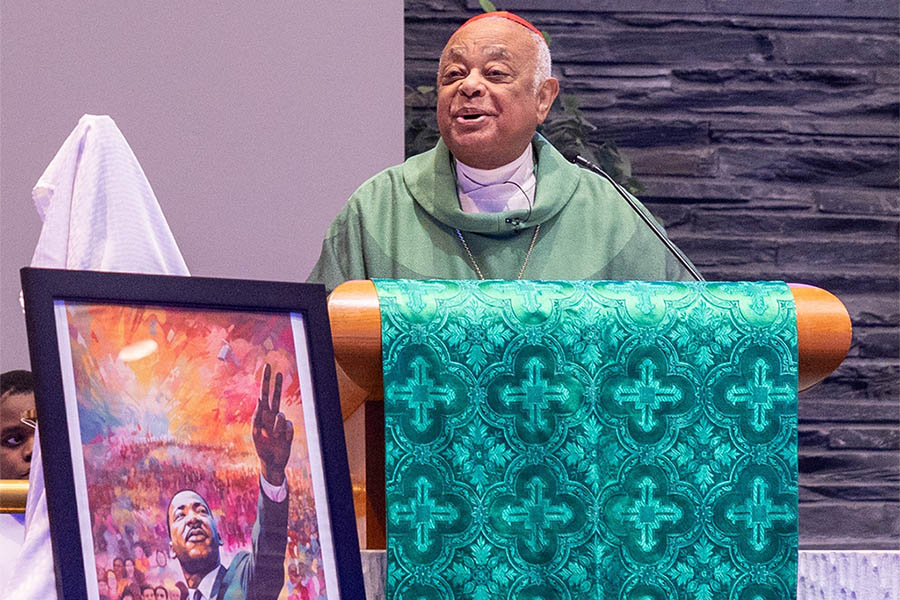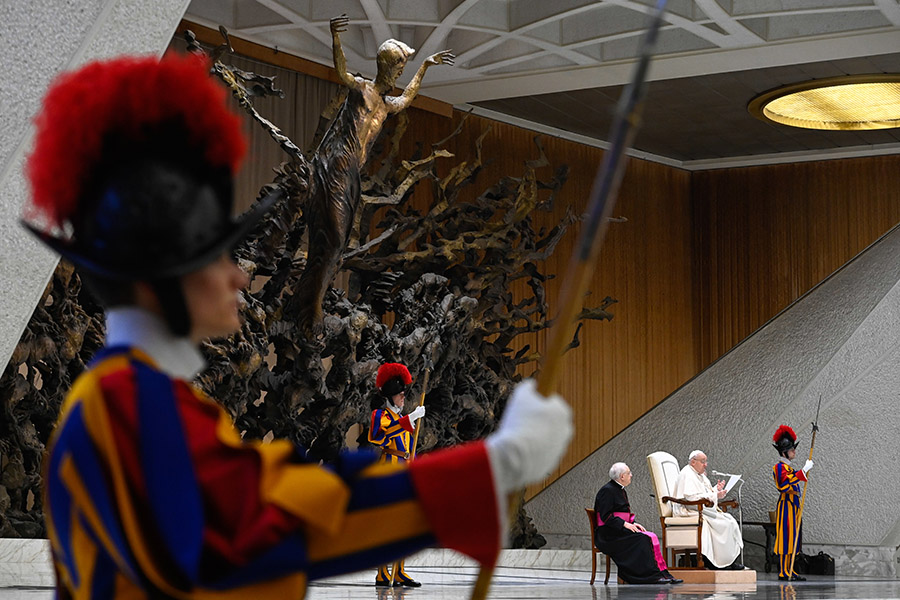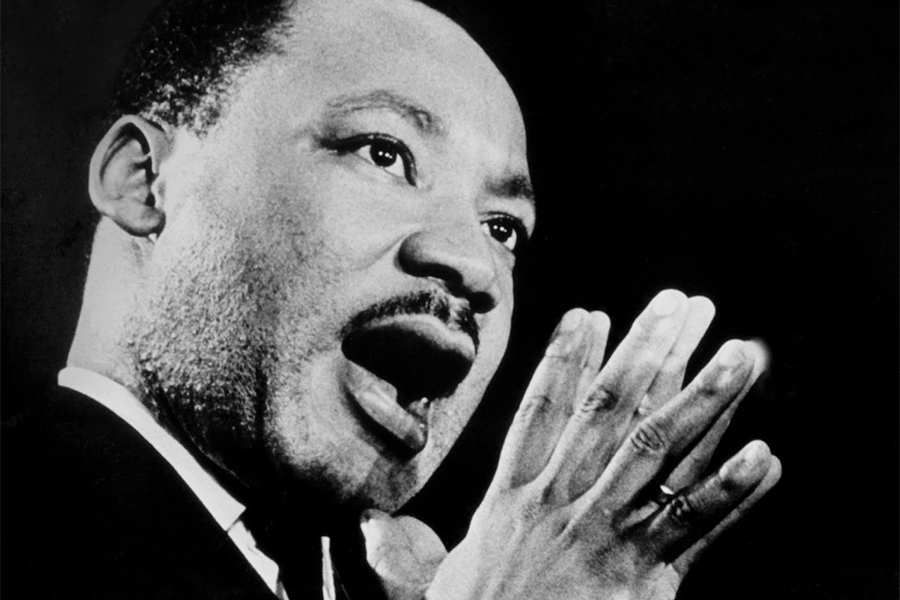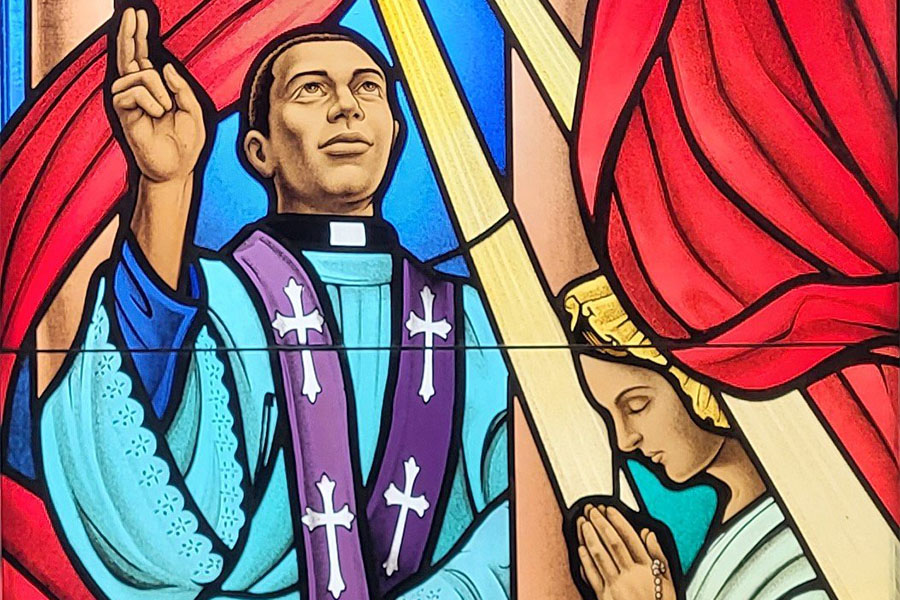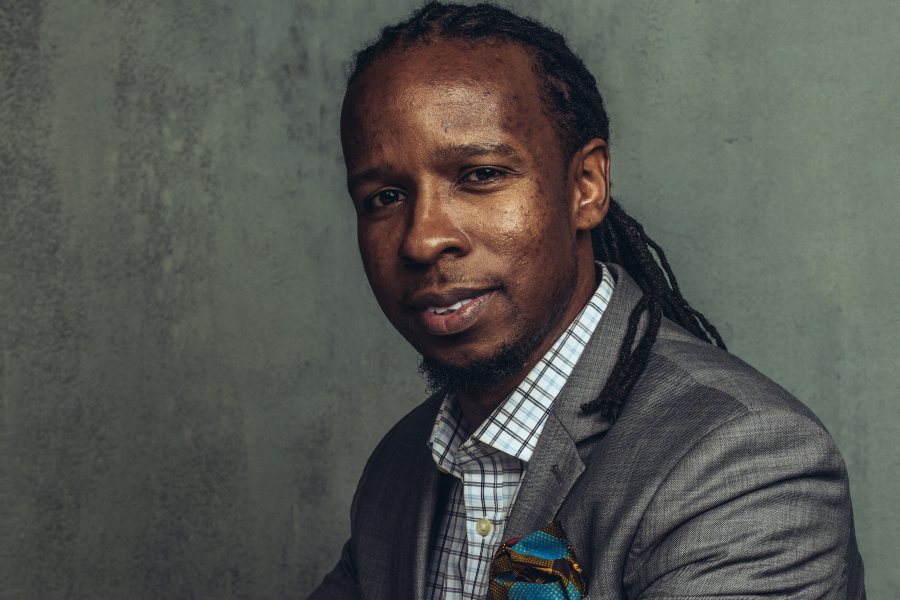
Stereotypes about Black people have been put forward to possibly explain why they and other minorities are dying at a higher rate of COVID-19 than other groups: that somehow Black people aren’t taking the virus seriously, aren’t social distancing or have been subjected to preexisting conditions they brought on themselves by poor habits.
Ibram X. Kendi, the New York Times bestselling author of “How to Be an Antiracist,” believes those stereotypes are not only demonstrably false, but they are put forward to divert from the real problem: systemic racism.
“We’re dying at twice the rate of white people,” said Kendi, speaking via videoconference during Loyola University Maryland’s 28th annual Martin Luther King Jr. Convocation Jan. 20.
Kendi pointed out that Black people have less access to good health insurance. They are more likely to live in trauma “deserts,” without easy access to life-saving care. Their neighborhoods are frequently polluted with toxins and they often work in fields that require their physical presence, putting them at greater risk for contracting the virus.
Kendi sees the effect of the pandemic on Black people as but just one example of how systemic racism is a threat to a whole people. It’s another reason the nation must dismantle racist policies.
As Kendi explained, there is no such thing as “not being racist.” One is either racist or antiracist. Antiracism refers to a person’s admittance of his or her racist tendencies and biases, he said, an important first step in reforming inequalities. Regarding racist ideas and policies, Kendi asks, “How are we going to get rid of them if we don’t even admit them to begin with?”
Asked during his presentation whether he supports reparations for African Americans, Kendi noted that there is a growing income disparity between the races. Before the pandemic, white median wealth was 10 times the amount of Black median wealth, according to the Brookings Institution. That gap is projected to widen.
“What I want folks to do who are opposed to reparations is bring us a policy program that can eliminate the racial wealth gap,” Kendi said, “because I haven’t seen one.”
Kendi said there are only two possibilities to explain injustices and inequities: they are systemic or there’s something wrong with a specific group of people.
To state that the problem is the people is racist, he said.
Kendi, founder and director of Boston University’s Center for Antiracist Research, said individuals have supported racist policies out of their own self-interest.
The call to reflect on one’s own racist tendencies is not an easy one, as Kendi points out. Doing so means constantly critiquing one’s own thoughts and actions and the ways they contribute to racist stereotypes. Many are more comfortable ignoring their biases, giving into the “addiction” of racism. Yet, for Kendi, the fight is worthwhile.
“Literally, to be antiracist is to fight for our lives,” he said. “It is to fight for the life of humanity.”
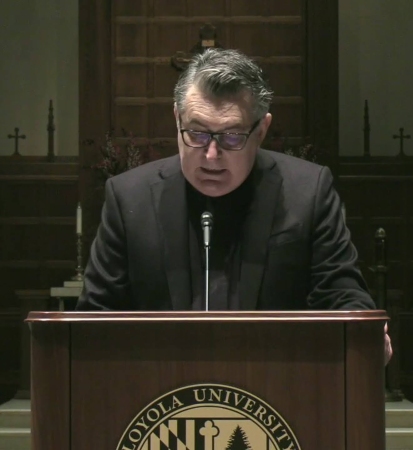
The mission the Rev. King began more than six decades ago is an ongoing one, Kendi said. The civil rights movement, Kendi asserts, is incomplete. He hopes that years from now, people will look back on his work, as they do for the Rev. King, as part of a critical transformation to an antiracist society.
Jesuit Father Brian Linnane, Loyola’s president, spoke of the convocation’s importance in the context of Jesuit tradition. Father Linanne insisted that Loyola, a university situated between disproportionately poor and wealthy neighborhoods, is committed to building a more inclusive environment on campus and within the greater Baltimore community. As part of that mission, Loyola recently hired Dr. Cheryl Moore-Thomas as its first-ever chief equity and inclusion officer.
In July, Loyola removed Flannery O’Connor’s name from a residence hall after students and others raised concerns about racist language the author had used in her youth. The hall was renamed in honor of Sister Thea Bowman, the first African-American member of the Franciscan Sisters of Perpetual Adoration. Loyola is undergoing a larger review of all the names of its buildings.
“Coming together for this convocation is an important tradition for us as a Jesuit Catholic university committed to social justice, intellectual reflection and engagement with the world,” Father Linnane said.
The Loyola event was moderated by Dr. Karsonya Whitehead, associate professor of communication and African and African American Studies at Loyola.
George Matysek Jr. contributed to this article.
More on Racial Justice
Copyright © 2021 Catholic Review Media

